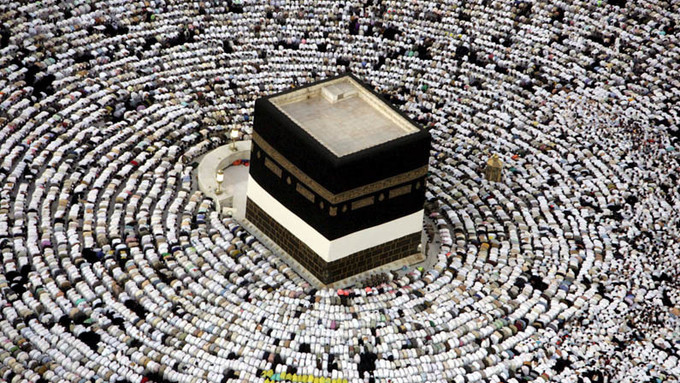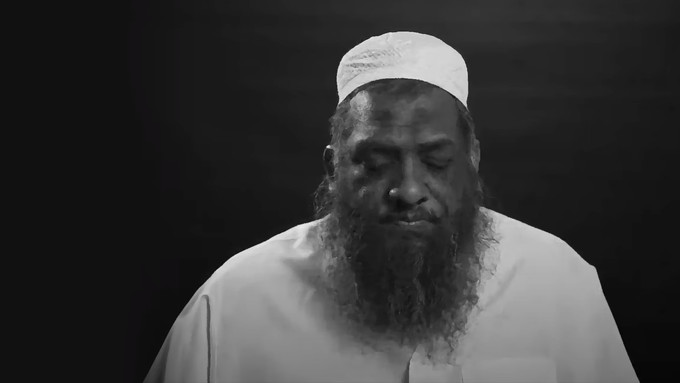What Is Power For?
The biography of the Beloved ﷺ does not receive proper focus and attention. That is not to say that Muslims are not interested in hearing and reading about the life of the Beloved ﷺ. Indeed, many Muslim homes have at least one book on his biography and some of the most popular video and audio recordings famous teachers have produced are ones dealing with it. But it is one thing to be a passive recipient of historical information, and another to be actively engaged in learning how such a life guided by Revelation rather than whim could be realized in each one of us today. Adopting the Sunnah is not just about rituals. It is a worldview.
According to Quranic and Prophetic teachings, cosmology and metaphysics are the foundations upon which the tangible world manifests itself. “God does not change the condition of a people until they change what is within their own selves.” [Quran 13:11] If beliefs and actions confirming them are not straightened out, then Muslims should not expect Divine facilitation towards success in this world, and should even be concerned about success in the next. To put it in the words of Umar ibn al-Khattāb (may Allah be pleased with him), “We are a people who were ennobled by God through Islam, and if we seek nobility in anything other than it, then God will debase us.”
The only thing mentioned in the Quran to have been granted unequivocal safeguarding and support from God is the Quran itself, and by extension that which ensures its message is not distorted, including the Sunnah of the Beloved ﷺ and all the ancillary disciplines that serve them. “Surely, We have brought down the Reminder and it is certainly We who will safeguard it.” [Quran 15:9] However, when it comes to Muslims as a people, God’s support is absolutely conditional, and His promised merchandise is expensive.
In the midst of all Muslim activism and political engagements is a critical question that has to be answered with crystal clarity: why are we in the precarious position that we find ourselves today? It is easy to dismiss the spiritual as abstract and immediately, or what we really mean to say “materially” intangible. Being “woke” has social currency, and continually showing outrage, as well as spending day and night in organizing movements feels rewarding. But what if the castle is built on quicksand? Without an internal firm foundation rooted in Islamic principles, what do the external accolades mean and in what way do they really matter? If our primary goal is articulated based on a temporal sense of justice rather than a transcendent Divine one, then we must recognize that God’s religion and the Beloved ﷺ are too noble to have us in a position of power that we would then falsely claim to wield in their name. We are not that special and God is not in need of us.
Abū Sufyān ibn ‘Harb (may Allah be pleased with him) was not always a companion of the Beloved ﷺ. He gathered 3000 fighters and led them against Muslims at the Battle of Uhud to seek revenge over the loss Meccans had endured at the Battle of Badr. After the death of Abū Jahl at Badr, Abū Sufyān became the leader of Quraysh, vowing to continue the fight against the Beloved ﷺ with any means he saw fit. He followed up his victory at Uhud with leading a 10,000 man strong army to Medina at the Battle of the Trench, where they blockaded the city and starved Muslims for 3 weeks in what ultimately was a failed attempt to massacre them. When he was not leading battles against Muslims, Abū Sufyān ensured the continuation of imprisonment and torture of anyone who converted to Islam in Mecca. In short, Abū Sufyān was not only a leader of forces against the Beloved ﷺ; he was also a symbol of evil and oppression wherever he was.
On the 8th year after the Beloved's ﷺ migration from Mecca to Medina, Quraysh broke the terms of the Treaty of Hudaybiyyah, which they made with him only a couple of years earlier. At this point the Beloved's ﷺ power had grown to a point that Quraysh could not face anymore, and he now had the support and following of surrounding tribes. So he ﷺ led a 10,000 man strong army towards Mecca. Following a couple of minor skirmishes the city surrendered without resistance. After a long career of fighting the Beloved ﷺ and persecuting of Muslims whenever they had the opportunity, Abū Sufyān and his people were now under the mercy of the Beloved ﷺ.
When the Muslim army took over Mecca its inhabitants assumed the worst. After more than 20 years of what they had done to them when they were in power, they expected payback. However, the Beloved ﷺ declared onto them that whoever remained in their home were safe. More significantly, he declared the house of Abū Sufyān as a safe zone. After the initial hours of panic and confusion subsided the Beloved ﷺ called the Meccans to gather near the Ka’ba and asked what they thought he would do with them. They replied, “You are a noble brother, and a son of a noble brother.” The Beloved ﷺ declared, “There is no blame on you today – may God forgive you.”
This event from the life of the Beloved ﷺ poses a question for Muslims today. Should the tables turn in a place like Palestine for example, what will we do? We know that when it comes to having power and dominion in this world, despite any illusions we may have to the contrary, that it is a matter solely for God to grant to anyone He wishes: “Say, O God, Master of the Kingdom! You grant the kingdom to whomsoever you please and take it away from whomsoever you please. You exalt whomsoever you please and abase whomsoever you please. In Your hand is the good; surely, You have power over all things” [Quran 3:26]. In other words, the power dynamics in that piece of land, or anywhere in the world for that matter, are not the way they are because of U.S. support or advanced weaponry. These are merely the fingers that we have confused for the moon they are pointing to.
One of the most prominent historical figures Muslims know of is Salahuddin al-Ayyubi, whose magnanimous actions and generous terms granted to his enemies after he liberated Jerusalem in 1187 from the Crusaders are widely known. What is not as popularly acknowledged about Salahuddin is that aside from the Quran the other book he always carried with him was Imam Abū Hāmid al-Ghazālī’s Ihya Ulum ad-Deen (Revivification of the Religious Sciences). It is interesting to note that one of the criticisms leveled against Imam al-Ghazālī was his apparent lack of concern with Jerusalem in his writings, which during his time had fallen to the Crusaders. But as history would show, Imam al-Ghazālī was dealing with the deeper problem that led to Muslims losing Jerusalem in the first place. He put together the spiritual recipe that was an important factor contributing to how Salahuddin was shaped into a figure worthy of Divine facilitation. That was what made his behaviour when he triumphed prophetic.
The public discourse on the conditions of Muslims today and relationship between Islam and modernity seeks to find its answers in the calls to “reform” the religion. It is outwardly focused and misses the mark. Being a Muslim is a responsibility to be woke, but not in the way that “woke” is being limited. One must first be woke in terms of their own self. Imam ar-Raghib al-Isfahanī mentions in his text on Islamic ethics that the enemies of mankind are four: ego, whim, demonic, and worldly. Unless we understand how to battle the first three, we will continue to experience deterioration of our worldly status. Indeed, the world is the way it is as a result of how well we are doing in our battles against the first three enemies. It is an apparent manifestation of events that take place in the unseen world.
So the troubling question poses itself again here: if we have an honest reflection over our current spiritual state, should the tables turn in a place like Palestine, what will Muslims do?
Faith & Spirituality Related Articles

5 Practical Steps To Get You Ready for Ramadan
As Ramadan is less than a month away, we might feel we often haven't done enough to prepare for it. Here are 5 things we can do right now during Shaban to make sure that we get the most out of Ramadan. The Prophet (Peace & Blessings upon Him & His Family) supplicated,” O Allah give us the blessings of Shaban and give us the treasure of Ramadan.”

Hajj at Home: Kindling the Spirit of Arafah
Even if we are not on Hajj this year, our situation is no different. We navigate through the complexities of our daily life, immersed in the never-ending responsibilities of work and family, inundated with the intrusions of technology and social media into every minute of our lives, moving from place to place and idea to idea.
